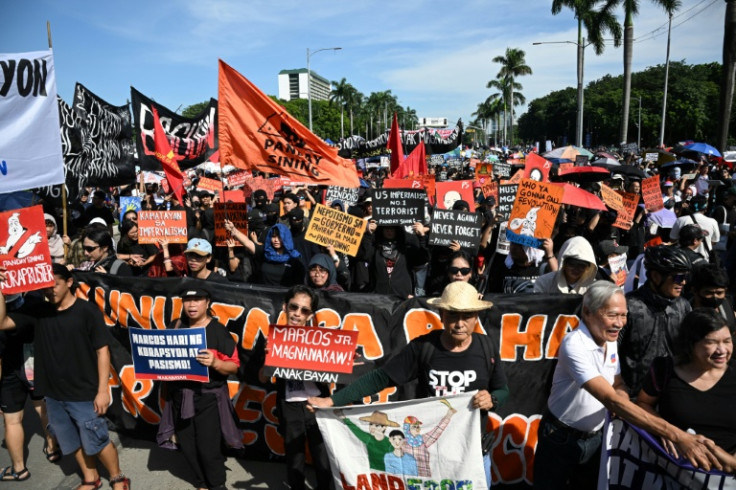Billions Stolen, Leaders Toppled: How Asia's Youth Are Rising Against Corruption From Philippines to Kathmandu
Protests in the Philippines, Nepal and Indonesia reveal how Asia's youth are rising against corruption and elite privilege.

From Manila to Kathmandu and Jakarta, youth-led uprisings are shaking Asia. Corruption scandals, elite privileges and broken promises have driven tens of thousands onto the streets, toppling leaders and forcing governments to confront a generation no longer willing to tolerate impunity.
Ghost Projects in the Philippines
Exactly 53 years after Ferdinand Marcos Sr. declared Martial Law, thousands of Filipinos filled Manila's Luneta Park to denounce a scandal engulfing his son, President Ferdinand 'Bongbong' Marcos Jr.
The outrage centres on billions of pesos allegedly siphoned off through 'ghost' flood control projects that were contracted but never built.
Police estimated that at least 100,000 protesters had gathered by mid-morning on Sunday, with more joining later as the march moved down Epifanio de los Santos Avenue (EDSA), the road that symbolises the 1986 People Power uprising which ousted the elder Marcos.
'This theft of public funds is truly shameful,' said Aly Villahermosa, a 23-year-old nursing student, told Agence France-Presse. 'If there's a budget for ghost projects, then why is there no budget for the health sector?'
Marcos Jr. has acknowledged public anger, urging peaceful protests even as the military was placed on red alert. The Department of Finance estimates losses of 118.5 billion pesos (£1.6bn; $2bn) between 2023 and 2025. Greenpeace says the figure may be closer to $18bn.
The fallout has already rattled Congress. House Speaker Martin Romualdez, a cousin of the president, resigned last week amid growing investigations, while construction executives accused nearly 30 lawmakers and public works officials of taking bribes.
Nepal's Gen Z Revolt
In Nepal, weeks of youth-led protests dubbed the Gen Z protests forced Prime Minister K.P. Sharma Oli to resign. Demonstrators accused his government of corruption, censorship and economic mismanagement.
Authorities tried to quell dissent by banning dozens of social media platforms, but the move backfired. Violence escalated, leaving more than 70 dead and hundreds injured. In the aftermath, Sushila Karki, a former chief justice, became interim prime minister, pledging transparency, reform and fresh elections in 2026.
Indonesia's Anger at Elites
Indonesia has also been rocked by unrest. Anger erupted over lavish parliamentary perks as citizens struggled with rising living costs. A monthly housing allowance of 50 million rupiah (around £2,400; $3,000) for lawmakers triggered mass protests in Jakarta and other cities.
The backlash forced President Prabowo Subianto into a cabinet reshuffle, removing several ministers including the finance chief. Reports of deaths during the unrest deepened pressure on the government, as demonstrators demanded accountability and a reset of priorities.
Shared Threads Across Asia
From Manila to Kathmandu to Jakarta, the protests share striking themes:
- Youth discontent: A new generation is refusing to accept politics as usual.
- Corruption and privilege: Whether ghost infrastructure in the Philippines, elite perks in Indonesia or entrenched misrule in Nepal, the grievances are the same.
- Social media as a weapon: Platforms have fuelled mobilisation, and efforts to suppress them have only intensified anger.
- Political upheaval: The fallout has toppled leaders, forced resignations and shaken cabinets.
A Warning to Elites
For the Philippines, Nepal and Indonesia, the message is clear: corruption and impunity come with consequences. These uprisings are not isolated scandals but stress tests of fragile democracies.
For UK readers, the lesson resonates. In an era when disillusionment with elites is spreading worldwide, Asia's youth are showing that patience with corruption has limits, and that the streets still have the power to change politics.
© Copyright IBTimes 2025. All rights reserved.






















